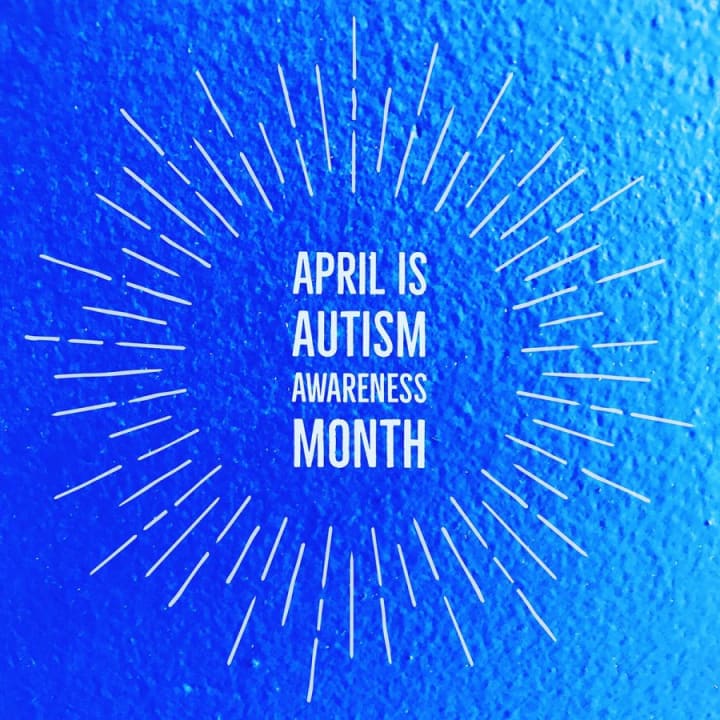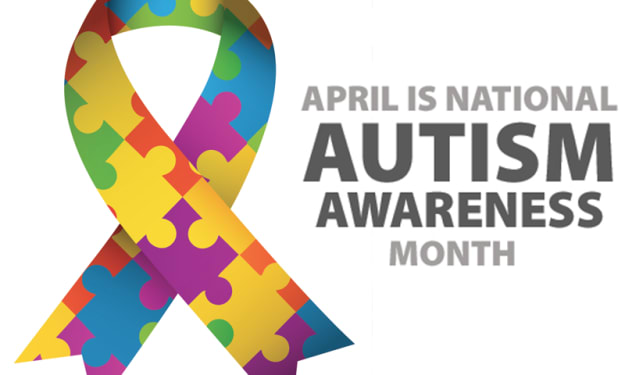Autism Spectrum Disorder and Schizophrenia: Differentiating the Two
Discerning the Overlap

WHAT THIS ARTICLE WILL COVER:
Cases of Autism Spectrum Disorder have been burgeoning over the last decade or so. So much so that it was believed that there was an Autism epidemic, albeit, it has been downplayed that this was merely a growth in diagnoses. The general assumption was that this was attributed to environmental factors, or as a byproduct of vaccines. However, none of this has been quantified by concrete evidence. We have seen this in popular culture, in the romanticized depictions of individuals on the spectrum such as that of Sheldon Cooper in, The Big Bang Theory, or Christian Wolff in the Account.
One character worth noting that has received this kind of glorified depiction as it relates to this topic is Dr. Spencer Reid from Criminal Minds because he typifies an aspect of Autism Spectrum Disorder that has gone greatly overlooked, and which is the main topic of this article. With an IQ of 187, the eccentric and socially awkward genius has a comorbid condition of both Asperger’s, which has recently been added to the Autistic Spectrum per the DSM-5, as well as that of coexisting Schizophrenia.
It is this dual diagnosis of Reid’s that will provide the scope through which this article will focus on. At a glance, this article will provide an in-depth cross-examination of both Autism Spectrum Disorder, and its signs and symptoms, in juxtaposition with that of Schizophrenia.
As part of this cross-comparison, we will look at the many noted similarities that these two unrelated disorders share. In observing these noticeable correlations and relationships between these two ostensibly unrelated disorders, we will touch on why it is that so many adults living on the spectrum are misdiagnosed with Schizophrenia and the frustration that this must cause them. We will conclude with an analysis of how autism spectrum disorder generally is accompanied by a co-morbid condition, which more frequently than naught can include Schizophrenia, all of which contribute to the difficulties in treating autism spectrum disorder, but that also create these misdiagnoses.

AUTISM SPECTRUM DISORDER AT A GLANCE:
What is so fascinating about how similar in the ways that autism spectrum disorder is similar to Schizophrenia, is found in the way that they too are also vastly different. For starters, while Schizophrenia is typically classified as a mental disorder, and more specifically that of a thought disorder, what we find in stark juxtaposition is that ASD is a noted neurological condition that affects the individual’s nervous system. This can even be seen at the root of some of their symptomology, as is present in such cases as stemming and other basic motor functions, as well as in the presence of co-existing ailments.
It is on this neurological level that ASD can be best understood. One cannot emphasize enough how ASD is one that is measured on a spectrum that includes a vast and broad variety of signs and symptomology. As Dr. Stephen Shore said in this regard, “If you have met one person with autism, then you have met one person with autism.” When we look at autism from this lens, it is like looking at a condition that has thousands of different stories.
This broad range of symptoms can be seen in the very from the diversity including the non-verbal to that of the highly functioning individuals with Asperger’s. Nevertheless, with all things kept into consideration, we can still see a typical pattern in the presence of restrictive and repetitive rituals, habits, and behaviors to the like of difficulties and deficiencies in areas of social cues and interactions as well in the area of communication, nonverbal and on all other levels. ASD can also include hyper -or hyposensitivity to sensory to their environment and sensory perceptions. Here, it should be noted that in each individual case there are measurable levels of severity for each of these symptoms, including poor, marginal, and functional.

SCHIZOPHRENIA OVERVIEW:
Again, to better highlight how these two disorders overlap it is best to see the ways in which they are still vastly different from one another at their core. While ASD was a neurological condition, what we find in the case of Schizophrenia is that it is a mental condition, and more specifically that of a thought disorder. What this means, is that, whereas Bipolar is a mood disorder that affects the individual’s emotional stabilization, this particular disorder impairs the patients’ thought contents.
With this definition in mind, Schizophrenia is generally accompanied by disturbances in the quality of thoughts, including but not limited to hallucinations and delusions that may seem out of touch with reality, and would bring many metaphysical inquiries into question. These distortions can be either positive or negative in nature; simply referring to the contents thereof. Schizophrenia may also include disorganization of speech and of presentation, difficulties in concentration and memory, as well as decreased participation in daily activities.
THE MANY PARALLELISMS:
At present, what researchers are discovering is there either seems to be a direct relationship between these two ostensibly separate ailments, or alternatively, that there are just many overlapping features. The most noticeable of which is that both Schizophrenia and Autism lie on a spectrum. One of the clearest exemplifications of this is that of the difference between non-verbal autism and Asperger’s as it compares to the burgeoning onslaught of schizoaffective disorder which is that of Schizophrenia existing at the same time with bipolar disorder. So much is this the case, that there are even debates at present on whether or not to include ASD as part of the Schizophrenic spectrum and matrixes as well?
Another clear-cut demonstration of the many similarities comes in the area of social interactions. What we find in the case of individuals residing with someone on the spectrum is that in the case of being overwhelmed that they can have a high propensity to withdrawal, and these states of withdrawal are highly similar to the types of behaviors and withdrawal that are typical in Schizophrenic type personalities. Here it should be noted that the most common areas are in the realms of social deficiencies, sensory processing, as well as that of a matter of mere genetic expressions.
Speaking to the topic of sensory processing, it is unfortunate that many individuals on the spectrum find themselves dealing with frustrating misdiagnosis of Schizophrenia as a result of their hyper and hypo sensory perception challenges. What we find in this case is that the autistic individual can obsess or become fixated on their environmental sensory perception so much so that it may come across as a state of psychosis, when this simply is not the case but is nevertheless interpreted as such.
Even more fascinating is the way that these two seemingly unrelated ailments share so many genetic markers. While it is unknown what causes either of these conditions, it appears evident that there are environmental stressors and factors that can contribute to both such as childhood bullying, trauma, and abuse. It has also been speculated that these genetic markers can include in-utero exposure to inflammation, or the presence of various vaccinations, although these claims have yet to be validated.
That being said, there seem to be countless many ways in which these two conditions may even be interrelated. What is seen many times is that the difficulties in a speech that is present in ASD, such as in the case of echolalia and other symptoms are misinterpreted to the degree of the disorganized speech present in Schizophrenia. What we can find here is that there is a commonality in language between both Autism and Asperger’s. Repetitive speech in ASD can be misinterpreted as Alogia in individuals with schizophrenia; alogia being a decrease in the speech of up to twenty-five percent.
Much other distinctive cohesion can be found in both ASD and schizophrenia. It can be observed in each individual case a presence of a propensity of aggression and anger varying in severity and noted difficulties in the area of social relationships and dynamics. Anhedonia creates social isolation in the individual with schizophrenia, and this is a trait that can be typified in the individual with ASD as well. Both can have difficulties in forming intimate relationships, with individuals on the spectrum being less than likely to be married. There are also social impairments present in both, just as there is noted motor rigidity present in both.
CONCLUSION:
According to the assistant professor of psychology at the Icahn School of Medicine at Mount Sinai in New York, Jennifer Foss-Feig, “Schizophrenia in autism or autism in schizophrenia — the overlap between the two disorders is higher than we’d expect.”
To this end, it is of the utmost importance that the distinction between the two disorders is discerned for future generations to come. This, of course, is to ensure that the individuals living with these conditions get the right treatment, and with it, the correct treatment. At present, there are too many variables and questions left unanswered. Are these two conditions related, and if not, why are so many autistic adults being misdiagnosed with schizophrenia diagnosis, and to this end, what can we do to ensure that this is not the case?
SOURCES:
https://www.spectrumnews.org/news/schizophrenia-prevalence-may-threefold-higher-people-autism/#:~:text=Researchers%20have%20long%20suspected%20that,expression%20patterns%20in%20brain%20tissue.
https://d1wqtxts1xzle7.cloudfront.net/53356829/Schizophrenia_and_Autism_-_Aspergers_Syndrome_-_Overlap_and_Difference_Clinical_Neuropsychiatry_2012-with-cover-page-v2.pdf?Expires=1649366668&Signature=ej0uCucA59l8bH-g74VeujUBaRcqyNeBuWTRzxu85xbnMGM9Y4m-cMRaqRwi5qeka32jRb8ZWwFUNCIh3a4Q96Wku-nXkundVt3KeYiiPbdnMiC4S-kaCsnJtggeaV7yzIB~nudoP2w5f8iaVbutyo25uqUW6NiKY~b7jedFJ6FI2XKF3p18yAF5QINlv4qSDCcRDeQggsS-RWrUPpSb~XTcMVHrWyQD5xDzqyMA5b5E99dj2Vko6Crz1IQd0GjzJVCYczAJPbHh42pGv11BabQ69ciuTba2aPb~rBj~vqaXvYxnJM6WrIYmSI49Ci~YSiVn00HOTUB8krscoFwc9g__&Key-Pair-Id=APKAJLOHF5GGSLRBV4ZA
Relationship Between Autism and Schizophrenia
The complicated and controversial history linking autism and schizophrenia does little to answer parents' concerns…
www.autismparentingmagazine.com
https://www.ncbi.nlm.nih.gov/pmc/articles/PMC5410649/?fbclid=IwAR39ygPv5Aye5XMNQdYgkVETVLJrlfeaSPsY8F4Nry0IYZdA8ueRNWQxWdk
https://www.frontiersin.org/articles/10.3389/fpsyt.2019.00078/full?fbclid=IwAR1auleBTVAqZl-HN6sTFCq8917i_MsbCFUQmYKwYeBmMx3g_EaAtCJvDDg#:~:text=In%20general%2C%20in%20clinical%20practice,schizophrenia%20with%20significant%20treatment%20implications
About the Creator
Aaron M. Weis
Aaron M. Weis is an online journalist, web content writer, and avid blogger who specializes in spirituality, science, and technology.






Comments
There are no comments for this story
Be the first to respond and start the conversation.